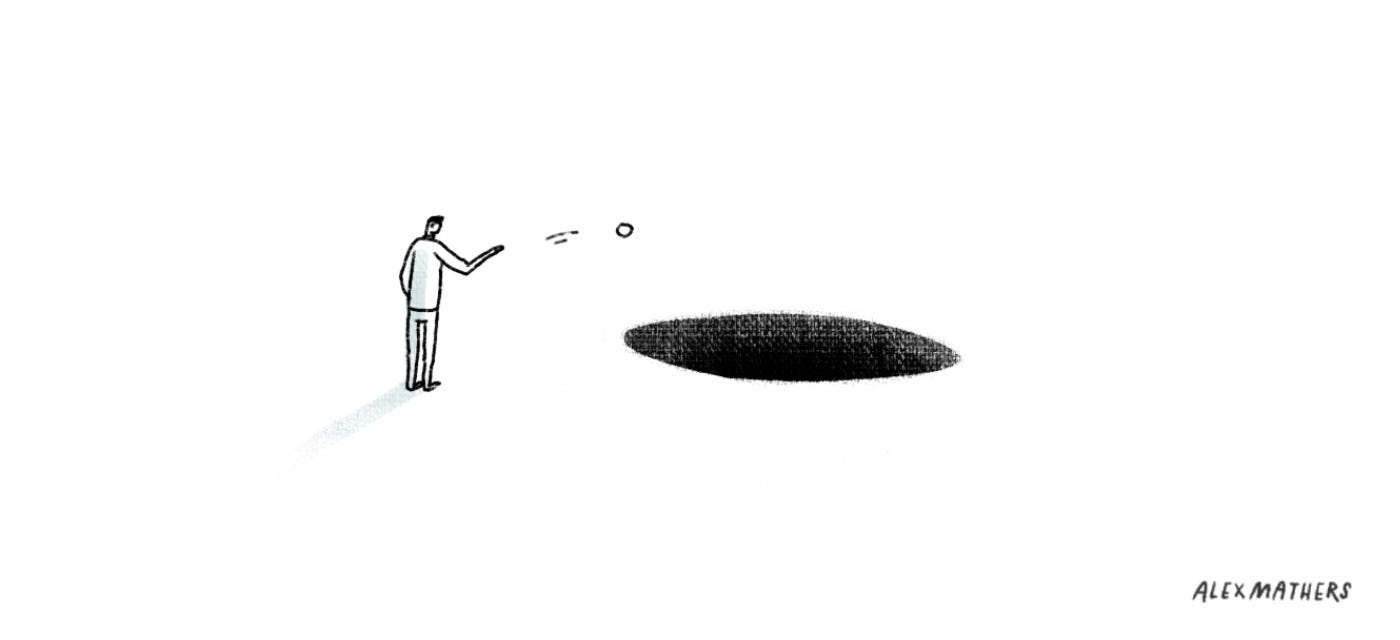15 short ideas that help you master wanting less so your life transforms
Untethered Mind, Friday Edition, 4-min read.
—
The more we want, the more we suffer.
Even wishing for happiness can bring about a sense of unhappiness. The mere act of wanting seems to put us in a state of lack.
Mastering the art of wanting less can change your life. Here are some ideas to help you get there:
Stoic philosophers like Seneca and Epictetus emphasised the importance of moderating desires.
According to Stoicism, true happiness is found not in acquiring more but in wanting less and being content with what one has.
“Do not spoil what you have by desiring what you have not; remember that what you now have was once among the things you only hoped for.” — Epicurus
Wanting less starts in the mind.
We must first make peace with the idea that having more isn’t necessarily better. In most cases, more adds complications.
What if having—and even doing—less was something to strive for?
Minimalism, as a personal philosophy, is about more than just owning fewer things.
Its philosophy encourages intentional living by focusing only on what matters most. When we focus on what matters, it makes sense to minimise.
Buddhism teaches that desire is the root of suffering.
We can achieve inner peace and enlightenment by practising detachment and reducing desires.
Hedonic adaptation is our tendency to return to a baseline level of happiness regardless of positive or adverse events.
Acquiring more shit might provide temporary pleasure, but eventually, we revert to our baseline, and we seek more, leading to continually sensing lack.
Wanting less can break this cycle and lead to sustained contentment.
Psychologist Barry Schwartz’s concept of the paradox of choice suggests that more choices can lead to less satisfaction.
Simplifying choices and reducing desires can lead to greater happiness and less anxiety.
How would your life change if you shifted your philosophy to reducing your options?
This could apply to your finances, your diet, relationships, and career, like with the following examples:
Simplifying your approach to work.
What efficiencies could you achieve by doing more with fewer things? This starts by looking at your most high-leverage activities and dropping those that don’t move the needle much.
Eating a simple, high-quality diet fewer times a day.
Order the components in bulk and minimise the time for prepping.
“Simplify, simplify, simplify! Instead of three meals a day, if it be necessary eat but one; instead of a hundred dishes, five; and reduce other things in proportion.” — Henry David Thoreau
Invest in closer, more meaningful relationships with fewer people rather than trying to maintain hundreds of loose connections.
Go and talk to your friend you haven’t spoken to in years.
Focus on activities that align with your personal goals, mission and values, and say no to crap you say yes to just to please others.
Spend selectively on experiences, higher-quality things, and items that align with your personal values, which will bring long-term satisfaction.
“My goal is no longer to get more done, but rather to have less to do.” — Francine Jay
Avoid career paths that lead to burnout and dissatisfaction, even if they offer higher financial rewards.
Enjoyment is currency, too.
Be conscious about screen time, and use of dopamine-stimulating habits.
When we reduce both, we have a significant advantage because our mind is stiller, our senses aren’t as numb, and we’ll be more creative.
Research shows that increased income and wealth do not lead to greater happiness after a certain point (once you’ve got enough to live decently).
This suggests that pursuing more is not necessarily a path to fulfilment.
See the art of wanting less as a practice.
What’s one thing you can do today to develop your practice?
—
If you enjoyed this, you’ll likely love my upcoming ebook:
‘Let go of the s#it that weakens you — 15 steps to rewiring your mind so you care less about what others think of you (in under 48 hours)’
I’m looking for testers to try out the process for a review.
For a limited time, you can get a free copy of the ebook.
To register your interest and hear about updates to this free offer, as well as bonuses for my other books, join my special reviewers list here.
Thanks for reading!
Want some further help?
“You have no idea how your words have helped me move through the most challenging time of my life. Game-changing!“ - Janet Hall, subscriber
You also get:
Access to exclusive Monday member’s content podcast: Stroll with Alex.
Access all courses and future courses (worth $50+ each).
Free instant access to Untethered Mind course to reduce anxiety (worth $290+)
Recent review: “I hesitate to say this because it’s such a bold statement, but this is the best course I’ve ever taken...ever...university included. Alex. Thank you." ~ George Sisneros, coach.
Support Alex as a writer.
Access all locked archive posts and videos.
—
You’ll also love my recent book: ‘The Art of Self Respect: Twenty-five subtle habits for cultivating deep self-respect and attracting the respect of others‘ — get your copy today.
Reach out to Alex today if you’d like to discuss working with him directly to help you with life challenges and achieving your goals.



your Art of Self-Respect book is fabulous! Love your advice. It’s real and relevant and applicable to many situations. Thank you! Keep up the great work 🌟
Hi Alex, a little confused with this paragraph - “Spend minimally on experiences, higher-quality things, and items that align with your personal values, which will bring long-term satisfaction.” Should this be spend more on experiences and higher-quality things for long-term satisfaction?